Kaplan Early Learning Company understands and supports the goals and needs of Head Start programs. Head Start has been a primary focus of our company for decades, so we have the resources and products needed to be your one-stop shop for Head Start and Early Head Start. Our products are great tools to use in helping 3 to 5 year olds develop skills in the areas outlined in the Head Start Child Development and Learning Framework.
We have provided information about the five essential domains of the Framework in the tabs below based on ECLKC resources. Browse our product lists for each element or contact your local Kaplan representative for expert assistance in choosing products for your Head Start program.
Domains
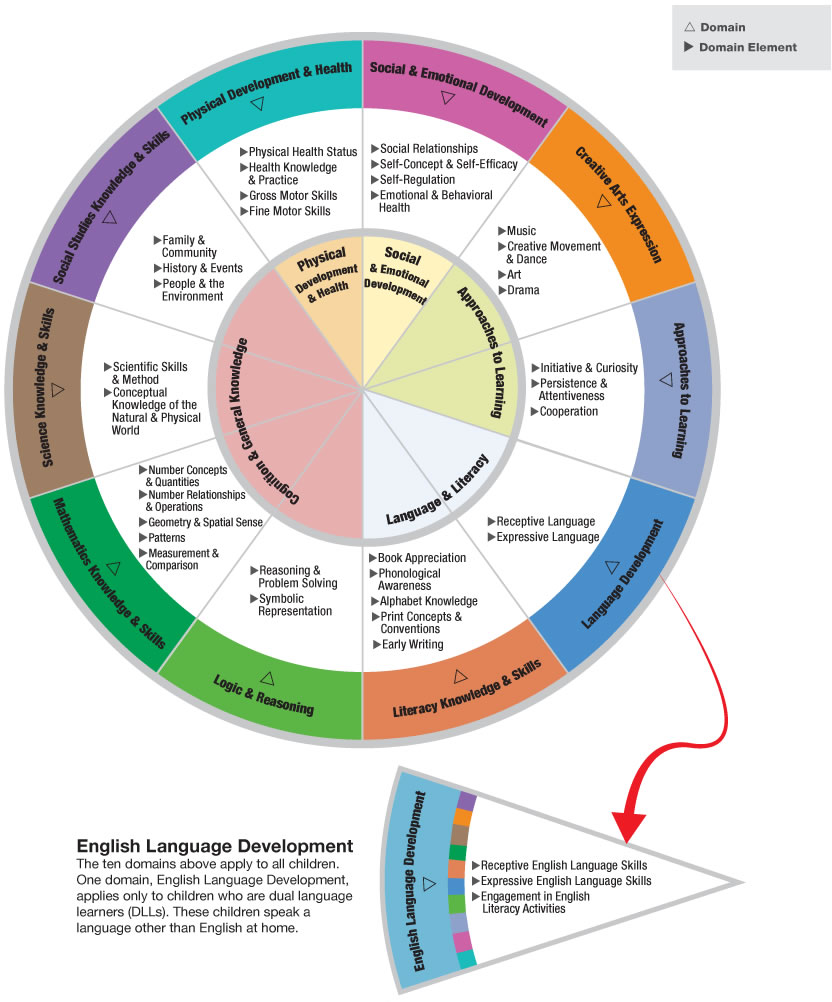
The Logic & Reasoning domain focuses on children developing the ability to think, reason, and use information to make good decisions and understand their surroundings. Children need to develop skills in logic and reasoning to ensure that they can seek solutions to problems and that they are not taken advantage of by other people or companies when they are older. As you choose curricula and assessments for your program, keep in mind the two domain elements of Logic & Reasoning and the accompanying examples of skills 3 to 5 year olds should be developing in this area:
- Reasoning & Problem Solving
- Children should recognize and understand cause and effect relationships.
- Using past knowledge to classify, compare, and contrast events, objects, and experiences is also an important skill for children to develop.
- Seeking multiple solutions to a problem or task is another sign that children are growing in this area of the Framework.
- Symbolic Representation
- Children should participate and act out roles in dramatic play.
- An ability to recognize the difference between pretend situations and reality is another skill children need to develop.
- It is also important for children to begin to understand that symbols or objects can represent something else at this stage in their development.
For more in-depth information about this domain or additional resources, visit the Cognition & General Knowledge page on the Early Childhood Learning & Knowledge Center's (ECLKC) website.
Kaplan offers a variety of interactive games, books, activity guides, and dramatic play items to help promote logic and reasoning skills in children.
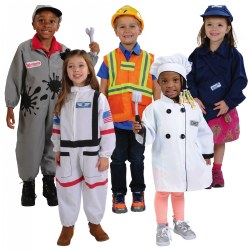

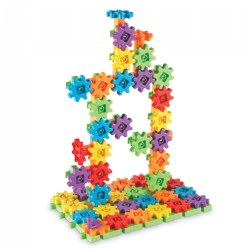
This domain refers to children understanding the concepts of numbers, shapes, and patterns among other math subjects. Young children need to develop early math skills to help them connect ideas and to question and analyze the world around them. The mathematic skills 3 to 5 year olds develop will be the foundation of how they solve more complex mathematical concepts and equations later in life. Remember the following elements and examples of mathematical skills 3 to 5 year olds should be developing as you create lesson plans based on suggested guidelines from the Head Start Child Development and Learning Framework:
- Number Concepts & Quantities
- Children should understand that numbers represent quantities and that they go in a certain order.
- Associating numbers and quantities with written numerals is another skill they should be developing at this stage.
- Children should also learn how to determine quantity by using one-to-one counting or by identifying the number of items without counting.
- Number Relationships & Operations
- Using a range of strategies to compare the quantity of two objects is one example of the skills children should be developing in this domain element.
- Children should also be able to recognize that numbers can be used to make another number.
- Identifying a new number when others are combined or separated is another skill 3 to 5 year olds need to develop.
- Geometry & Spatial Sense
- Children should be able to understand shapes, their attributes, and how they are related to one another.
- Comparing an object based on size and shape is another important skill for children to learn.
- Directions and the position of objects are other important concepts children need to develop in this area.
- Patterns
- Children should recognize patterns and how they are sequenced.
- Duplicating and extending simple patterns are other skills children need to acquire in this stage of development.
- Creating their own patterns is a great indicator of how children's skills are growing in this domain element.
- Measurement & Comparison
- Comparing objects by their length, weight, and size are necessary skills 3 to 5 year olds should learn.
- Using size or length to organize objects into a certain order is another example of what skills children should be developing in this area of the Framework.
- Using tools and techniques to measure and compare objects also demonstrates the knowledge and skills children are acquiring at this stage in their development.
For more in-depth information about this domain, visit the Mathematics Knowledge & Skills page on ECLKC's website.
Kaplan offers a variety of math materials that give children the opportunity to explore various mathematical concepts. Children can learn about measurements, quantity, shape, patterns, and more with our educational math games, number blocks, books, charts, and other math items.
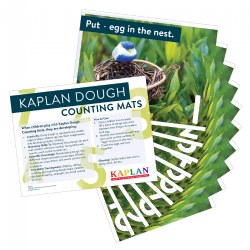
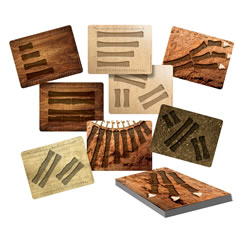
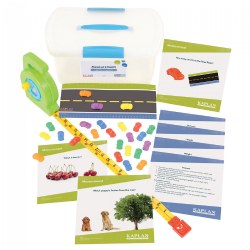
The Science Knowledge & Skills domain concerns the emerging ability of children to gather information about their surroundings and then organize that information into theories and knowledge. Children are very curious during the early childhood years and encouraging children to explore and learn about the world around them will help them develop an interest in the environment and other science subjects. As you design your Head Start program to meet school readiness goals, consider these elements and examples of the Science Knowledge & Skills domain:
- Scientific Skills & Method
- Children should use their senses and other tools to observe and collect information and then use that information to ask questions and investigate science processes and relationships.
- Children need to be able to observe and discuss similarities, differences, and comparisons among objects at this stage in their development.
- Another indicator of development in this area is whether children can use past experiences and what they are currently learning to make predictions and discuss explanations and generalizations in the science world.
- Conceptual Knowledge of the Natural & Physical World
- Observing, discussing, and describing living things and natural processes are a few skills 3 to 5 year olds need to develop in this area.
- Children should also be able to make observations, describe, and discuss material properties and how substances transform.
- Acquiring knowledge of the concepts and facts of science and then using that knowledge to understand relationships in nature and the environment is another skill children need to learn at this stage in their development.
Visit the Science Knowledge & Skills page on ECLKC's website for more in-depth information and resources about this domain.
Be sure to check out Kaplan's science book sets, aquariums, magnets, microscopes, scales, bug and animal sets, and our educational light table. Our science materials and supplies make great additions to the classroom and can help your Head Start program meet requirements and guidelines.
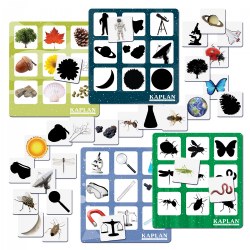
The Social Studies Knowledge & Skills domain refers to children understanding how people relate to one another and the world around them. The social studies skills children develop this stage in their development will help them learn about themselves, their family, community, nation, and the world. Keep in mind the following domain elements and skill examples when you are choosing assessments and curricula for your Head Start program:
- Self, Family, & Community
- Children should be able to identify their personal and family structure and understand and respect the similarities and differences among people.
- Being able to recognize the work associated with a variety of jobs is another skill children should be developing at this stage.
- Understanding why there are rules at home and in the classroom and laws in the community is also an important concept 3 to 5 year olds need to develop.
- People & the Environment
- Children should be able to recognize different aspects of the environment, such as land formations, roads, buildings, trees, and bodies of water.
- They should also recognize that the environment is shared by people, plants, and animals.
- Understanding that activities, such as recycling or turning off the water when they brush their teeth, can help take care of the environment is another important concept children need to learn at this stage in their development.
- History & Events
- Children should be able to differentiate between the past, present, and future.
- The ability to recognize what events happened in the past is an important skill for 3 to 5 year olds to develop.
- Understanding how people live and that what they do changes over time will help children be successful now and in the future.
For more in-depth information about this domain, visit the Social Studies Knowledge & Skills page on ECLKC's website.
Kaplan offers a wide variety of globes, multi-cultural items and activities, character education book sets, maps, activity books, and much more. Our social studies products will help children learn about diversity, traditions, history, and other cultures.
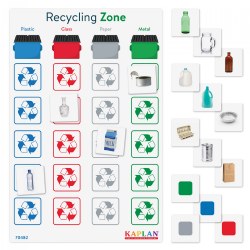
This domain of the Head Start Child Development and Learning Framework focuses on children's physical well-being, which refers to nutrition, exercise, personal hygiene, safety practices, and development of gross and fine motor skills. Learning good health habits early in life will help build a strong foundation for lifelong healthy living. Consider these four main elements and examples for Physical Development and Health when you are planning your Head Start program's curricula and assessments:
- Physical Health Status
- Children should have good health overall.
- Children need to get a sufficient amount of rest and exercise for their age.
- Maintaining physical growth within the appropriate ranges of weight, height, and age is also important in determining how a child develops mentally, physically, and emotionally during this stage of their life.
- Health Knowledge & Practice
- Children should understand and practice healthy and safe habits.
- Completing personal care tasks independently is another indicator of how children are growing in this area of the Framework.
- Children cooperating during doctor or dental visits and recognizing the importance of those visits shows a major step they have taken in the developmental process.
- Gross Motor Skills
- Understanding how the body moves and how to control their own body is an indicator of growth in this area of the Framework.
- Balanced movements and coordination for a range of activities are also skills 3 to 5 year olds should be developing.
- Fine Motor Skills
- Children should be developing increased hand strength, dexterity, and eye-hand coordination.
- Manipulating a range or objects, such as blocks or art supplies, is another indicator of the skills children need to acquire at this stage in their development.
For more in-depth information about this domain, visit the Physical Development & Health page on ECLKC's website.
Kaplan's selection of playground, nutrition, and active play items would make great additions to your Head Start program's lesson plans and curricula.
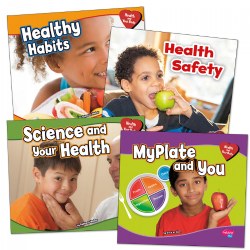

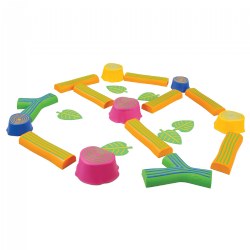
The Social & Emotional Development domain concerns the social and emotional skills that help children have and maintain healthy relationships, develop a healthy personal identity, regulate behavior and emotions, and foster secure attachment to adults. The emotional and social well-being of children will indicate the type of relationships they have as adults and how they will adjust to new environments in the future. As you consider how to promote continuous quality improvement in your Head Start program, remember the following elements and examples of the Social & Emotional Development domain:
- Social Relationships
- Children should interact and have healthy relationships with adults and their peers.
- Communicating with others and accepting or requesting guidance also indicates that 3 to 5 year olds are developing good social skills.
- Recognizing and labeling the emotions of others and using socially appropriate behavior with adults and peers are other examples of how children should be developing emotionally and socially.
- Self-Concept & Self-Efficacy
- Children need to identify their own personal characteristics, preferences, thoughts, and feelings.
- Showing confidence in accomplishing tasks, meeting goals, and making decisions indicates that 3 to 5 year olds are developing increasing skills in this area of the Framework.
- Demonstrating age-appropriate independence in a range of activities and in decision making should also be skills children are developing.
- Self-Regulations
- Children recognizing and regulating their own emotions and behaviors is a sign that they are developing at the right pace for this age group.
- Following rules, routines, and directions with minimal input from adults also indicates that children are growing in this area of the Framework.
- Children should also be learning to handle impulses or distractions independently from adults.
- Emotional & Behavioral Health
- Expressing a healthy range of emotions and being open to learning positive alternatives to negative behaviors shows that children are developing good emotional and behavioral habits.
- Adapting to new environments with age-appropriate emotions and behaviors also indicates that children are growing in this area of the Framework.
Visit the Social & Emotional Development page on ECLKC's website for more in-depth information and resources about this domain.
Kaplan's selection of social and emotional books, CDs, assessments, and other products and resources are valuable tools you can use to create a Head Start program that can help children meet school readiness goals.
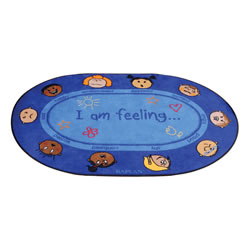

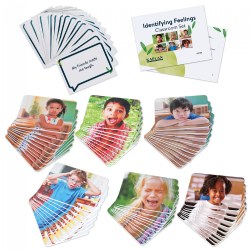
The Creative Arts Expression domain refers to children participating in a range of activities for creative and imaginative expression. Creative arts, such as music, art, and drama, help engage children's minds, bodies, and senses and help them develop positive forms of self-expression. The following domain elements and examples for Creative Arts Expression are important to remember as you make decisions for your Head Start center:
- Music
- Children should be participating in music activities or experimenting with musical instruments.
- Creative Movement & Dance
- Using their body to dance to different beats in music or to express their ideas or feelings is one example of how 3 to 5 year olds should be developing at this stage of their life.
- Art
- Children should use a range of materials and techniques to make art.
- Discussing their own projects and other people's art projects indicates growth and development in this area of the Framework.
- Children should also reflect their thoughts and feelings in their art.
- Drama
- Children should portray events, characters, or stories through dialogue, actions, or objects.
- Using their imagination and creativity to assume roles in dramatic play is a great of example of how children should be growing in the Creative Arts Expression domain.
For more in-depth information about this domain, visit the Creative Arts Expression page on ECLKC's website.
Kaplan's offers a wide variety of arts and crafts, dramatic play items, and music and dance materials. Any of these creative expression items would make great additions to your Head Start program.


The Approaches to Learning domain refers to certain behaviors you can observe that indicate the ways in which children become engaged in learning experiences and social interactions. Observing these behaviors will help you develop programs that accommodate children's approaches to learning, which will then contribute to their learning in other domains and in their success in school and life. Remember the domain elements and examples of this domain as you work to put together a Head Start program that meets requirements and helps children with school readiness goals:
- Initiative & Curiosity
- Children should be asking questions and seeking new independence at this stage in their development. They should also show an interest in a variety of topics and activities and have a desire to learn and be creative.
- Children who demonstrate flexibility, inventiveness, and imagination in their approach to tasks and activities are also showing their growth in this domain of the Framework.
- An eagerness to learn and discuss a variety of ideas and topics an excellent example of how children need to develop in this area.
- Persistence & Attentiveness
- Children's attention spans should be growing during this stage in their development. They should be able to begin and maintain projects and activities with interest and persistence.
- Setting goals, developing, and following through on plans for projects and activities is another indicator of how children are gaining skills in this domain of the Framework.
- Children need to learn to resist distractions, maintain attention, and continue with the task or activity they are working on even if they find it to be frustrating or challenging.
- Cooperation
- Planning, initiating, and completing learning activities with peers are great indicators of children's interest in group experiences.
- Cooperative play with others and inviting peers to play are other examples of how children should be developing in this domain of the Framework.
- Children should also be willing to help, share, and cooperate in a group at this stage in their development.
Visit the Approaches to Learning page on ECLKC's website for more in-depth information and resources about this domain.
Kaplan's selection of differentiated instruction and inclusion products will help your program teach children effectively. We offer a variety of lesson plans, study cards, reading strips, books, classroom labels, and more for you to incorporate into your Head Start program.
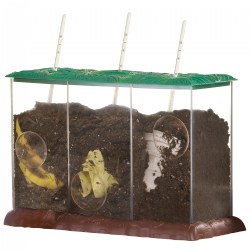
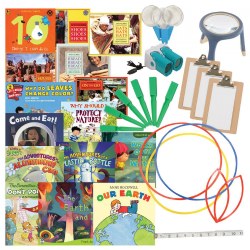
The Language Development domain focuses on children developing abilities in receptive and expressive language and often includes understanding and using at least one or more languages. Language skills are important for children to develop because they dictate how children will communicate now and in the future. Keep in mind the following elements and examples of the Language Development domain as you decide what curricula best serve the needs of the children your Head Start program serves:
- Receptive Language
- Children should be able to comprehend different forms of language, different rules for using language, and increasingly complex vocabulary during this stage of their development.
- Paying attention to language in learning experiences, such conversations, stories, and songs, also indicates how children are growing in this area of the Framework.
- Expressive Language
- Children should be able to use different forms of language to express ideas and needs, use different grammar rules for various purposes, and use a more complex and varied vocabulary.
- Engaging in communication and storytelling with peers and adults is another indicator that children are able to use language efficiently.
For more in-depth information about this domain, visit the Language Development page on ECLKC's website.
Kaplan offers a variety of language and literacy materials to help children increase their vocabulary and learn about the writing process.
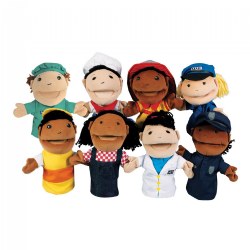
The Literacy Knowledge & Skills domain refers to the basic concepts and skills that help create a strong foundation for reading and writing. Knowing how to read and write will help children gain knowledge in other areas and encourage them to succeed in school. Remember the following domain elements and examples as you make decisions for your Head Start program:
- Book Appreciation & Knowledge
- Children should recognize how books are read and the common basic characteristics of books at this stage in their development.
- Showing interest in shared reading experiences, looking at books independently, asking and answering questions about materials, and being interested in different genres of books are all great examples of how children gain book appreciation and knowledge.
- Children retelling stories from books through conversation and creative outlets is another indicator of the skills 3 to 5 year olds are developing.
- Phonological Awareness
- Children identifying and discriminating between words in language, separate syllables in words, and sounds and phonemes in language are great indicators of the skills they have gained in this domain element.
- Alphabet Knowledge
- Children should learn to recognize the letters of the alphabet and recognize that each letter has a distinct sound(s) associated with it.
- Learning to identify alphabet letters and associate the correct sounds with those letters should also be a skill children learn during this stage in their development.
- Print Concepts & Conventions
- Children should be able to recognize print in everyday life and understand that print conveys meaning, which they must then work to understand.
- Understanding the conventions of print and recognizing the relationship between spoken and written words are also important concepts children need to learn.
- Early Writing
- Children need to recognize that writing is a way of communicating and start experimenting with writing tools and materials.
- Copying, tracing, or independently writing letters or words shows that children are beginning to learn how to write.
Visit the Literacy Knowledge & Skills page on ECLKC's website for more in-depth information and resources about this domain.
Kaplan's selection of language and literacy materials can help children learn the alphabet, phonics, and more.
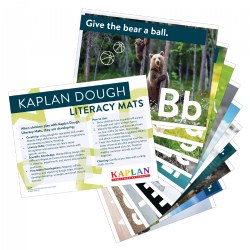
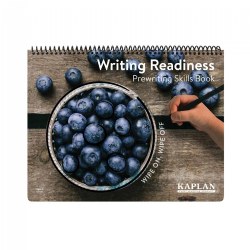
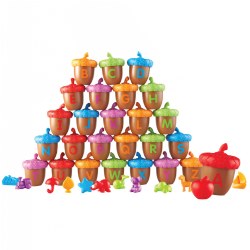
The English Language Development domain only applies to children who are dual language learners (DLLs). The development of English language skills for children who speak a different first language is important because the ability to understand and speak at least some English will help them in their studies and in everyday life. Be sure to remember these domain elements and examples when you are choosing curricula and assessments for your Head Start program:
- Receptive English Language Skills
- Nonverbally responding or acknowledging common words or phrases and participating with movement or gestures while others dance and sing in English are good indicators that DLLs have developed the ability to understand English.
- Following directions in English with minimal assistance or nonverbally responding to questions are also examples of behaviors DLLs may show as they are learning English.
- Expressive English Language Skills
- Repeating words or phrases or requesting simple items in English shows that DLLs have started to develop an ability to speak English.
- Children who use an increasingly complex English vocabulary or construct simple sentences are also showing that they have learned skills in how to use English to communicate.
- Engagement in English Literacy Activities
- Eagerness to participate in songs or stories in English and repeating part of a poem or song are examples of behaviors that show DLLs understand and can respond to items presented in English.
- Talking with others about a story read in English or telling a story in English indicates that DLLs have grown in their engagement with the English language.
For more in-depth information about this domain, visit the English Language Development page on ECLKC's website.
Kaplan's offers a variety of bilingual and English language learner materials to help children learn and become fluent in the English language. These items would be great additions to your Head Start program, especially if you have DLLs enrolled in your program.
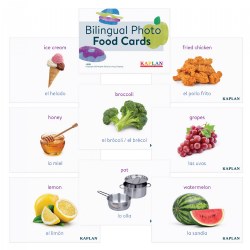
Curriculum & Assessment
Curriculum Resources:


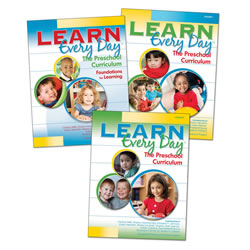
Assessment Resources:
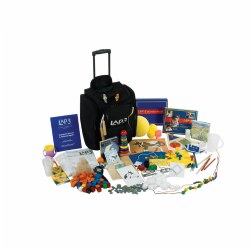
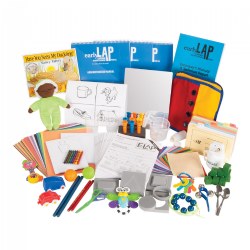

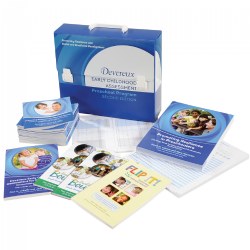
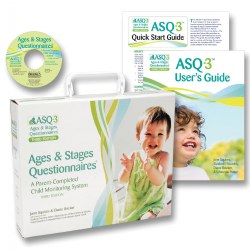
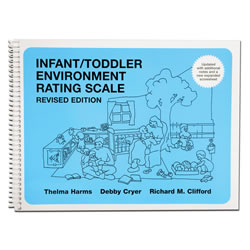

Classroom Materials
Head Start Classroom Lists
- Early Head Start Infant Classroom
- Early Head Start Toddler Classroom
- Early Head Start Two Year Old Classroom
- Head Start Preschool Classroom
- Head Start Essential Domains
Training
Kaplan offers online courses accessible from any computer with an internet connection through two online learning platforms. Through these courses, your staff members can complete training at any time that is convenient to their schedule. Courses offer certificates for Continuing Education Units (CEUs) and approved state training hours. View our full online professional development listing here.
Head Start 2016 Training Topics
Kaplan offers on-site professional development to Head Start programs across the nation. All of our training sessions are available in a full-day session format (6 hours) or a half-day session format (3 hours). Our Head Start-applicable trainings are designed specifically to meet the needs of your Head Start teachers and programs, with a fully customizable session format to fulfill your program's specific needs.
"Planning With Purpose: Using Observation and Assessment Data to Inform Practice"
This session addresses how to analyze collected data related to specific classroom observations or assessments. This session will also help educators create lesson plans designed for promoting and optimizing each child's learning experience in the classroom.
"Purposeful Engagements: Supporting Young Learners With Meaningful Interactions and Intentionality"
This session focuses on working with children, using definite program decisions and interactions that directly relate to and impact a teacher's relationships with children. It also addresses how to meet goals and objectives set by your curriculum/program, how to work with varying schedules, and how to support innovative practices. The trainer will demonstrate how to "get it all done" in a busy day with many brain-compatible learning strategies.
"Moving Beyond Empty and Fill to Deep Investigations"
This session helps coordinators and teachers incorporate numerous developing skill sets and the project approach in a school setting to help prepare them for expectations they will face. Trainers will emphasize brain-compatible learning strategies, developmentally appropriate practices, social-emotional skills, and cognitive enhancing endeavors.
"Constructively Meeting 10 Challenges of Working with Preschoolers"
In this session, participants will look at 10 different issues that seem to occur in every program, and will learn how to address these challenges in a creative, brain-compatible, and resilience-building manner. The trainer will provide specific information related to best practices/interventions, attachment, child development, expectations, temperament, and social-emotional development.
"Playful Explorations: Building a Foundation for Learning"
Use play to facilitate learning for any content area in the early childhood classroom! Participants will learn how to use play as a strategy to enhance STEM/STEAM (science, technology, engineering, arts, math) learning in specific content areas in the preschool classroom. This session contains information on enhancing cognitive brain development in preschoolers, as well as encouraging and promoting the development of a "community of learners."
"Family Engagement"
Learn how to examine the interactions and relationships between families, caregivers, and others who work with young children. This session looks at how to create the concept of "mind" and/or "consciousness" through games, activities, and interactions. Participants will look at specific strategies to assist during home visits, with ideas and activities for families to use that will be beneficial to their child.
Call us for custom quotes on full-year Professional Development packages at 1-800-334-2014.
Delivery
Kaplan is pleased to provide delivery and setup to your Head Start center! Our K-Truck Delivery and Setup Team will deliver your product and set up your classroom fully to provide the most effective and inspiring learning environments for preschoolers.
During delivery and setup, our experienced installations team will unload your product, place boxes in the correct classrooms, remove the packaging, assemble any furniture or larger products in need of assembly, and provide you with status reports. Our team can also provide other services, such as classroom arrangement, product placement on shelves, and freight-which your Kaplan representative can arrange for you.
K-Truck deliveries are available for new centers, churches, public schools, classroom additions, old center renovations, and many more. For Kaplan to deliver and setup product on the premises, each center will need to provide a Certificate of Occupancy and any required permits in place per local regulations.
For optimal efficiency with our K-Truck delivery service, we recommend that you place your order at least 60 days prior to set-up. For more information about Kaplan's K-Truck Delivery and Setup Team, contact your local Kaplan representative.
Alignments
Head Start
Learn Every Day: Head Start Child Development and Learning Framework
Alabama
Arizona
Delaware
Florida
Georgia
Learn Every Day: GA - 3 Years Old
Learn Every Day: GA - 4 Years Old
Illinois
Iowa
Kentucky
Minnesota
Mississippi
Learn Every Day: MS - 4 Years Old